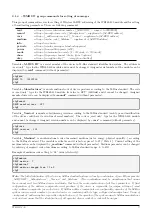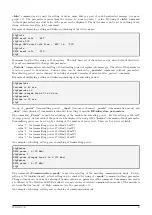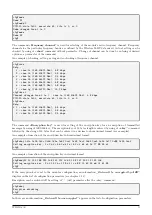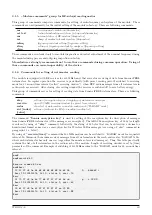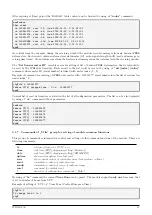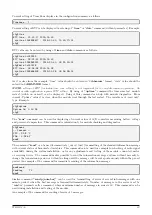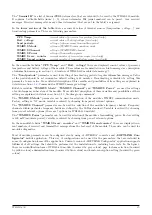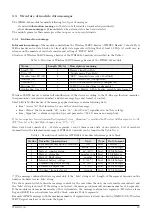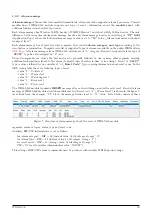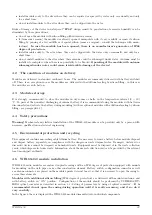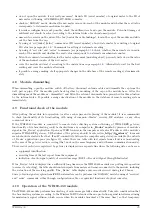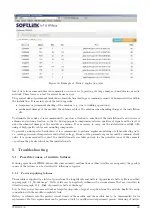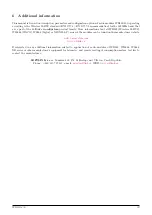
4
Operational conditions
This section of the document describes basic recommendations for transportation, storing, installation and operation
of WB169-430 radio modules.
4.1
General Operation Risks
The radio modules are electronic devices power-supplied by internal batteries.
The modules read counters or
registers of the connected consumption meters.
During their operation be aware mainly of the following risks:
4.1.1
Risk of mechanical and/or electric damage
The devices are enclosed in plastic boxes, so that the electrical components are protected from the direct damage
by human touch, tools or static electricity. In normal operation no special precautions are needed, besides avoiding
of the mechanical damage from strong pressure or shocks.
Special attention is required for signal cables that connect the radio modules with the meters or sensors. In operation
it is necessary to ensure that the cables are not stressed by mechanical tension or bending. In case of damage of
any cable isolation it is recommended to replace the cable immediately. If the module is equipped with a remote
antenna on a coaxial cable, much attention should be paid for the antenna and the antenna cable as well. The
minimum bending radius of the antenna cable with 6 mm diameter is 4 cm, for the antenna cable with the 2,5 mm
diameter the bending radius is 2 cm. Violation of these bending parameters can lead to breach of homogeneity of
the coaxial cable that can cause reducing of radio range of the device. Further it is necessary to ensure that the
connected antenna cable will not stress the antenna connector of the device by tension or twist. Excessive loads
can damage or destroy antenna connectors.
Installation of the module can be performed only by a person with necessary qualification in electrical engineering
and at the same time trained for this device installation. It is recommended to lead antenna and signal cables as
far from 230/50 Hz power cables as possible.
4.1.2
Risk of premature battery discharge
The devices are equipped with the long duration batteries. Battery life can be influenced by these factors:
•
storage and operation temperature – in high temperatures the spontaneous discharging current increases, in
low temperature the battery capacity reduces;
•
frequency of radio-transmitting.
Modules are delivered with preset period of regular transmitting of info-messages as stated in the configuration
table in section of this document and the battery life cycle is quoted for this period. If the transmitting period is
significantly reduced, battery life will be proportionally shortened.
4.1.3
Risk of damage by excessive humidity
Radio modules could be (as any other electronic devices) damaged by water, that could cause a short-circuit among
some electronic elements or corrosion of the elements. Correctly assembled plastic box protects the module’s printed
circuit board against direct penetration of water, but the damage could be caused also by gradual penetration of
humid air which can cause corrosion or other damage by condensed water inside the box.
Modules are enclosed in IP65 grade plastic boxes (proof against short-time squirted water) or with additional sealing
by high-adhesion silicon filling, that can ensure proof against inundation by water (IP68 grade). Modules, that are
delivered with IP68 sealing from factory are clearly assigned by IP68 degree of protection on the manufacturer’s
production label (e.g.: ”WB169-430/B13/IP68”).
Risks of damage of the device in basic
”IP65”
design caused by penetration of excessive humidity can be eliminated
by these precautions:
•
install only modules that are correctly assembled, with undamaged box and undamaged rubber seal;
•
in case of any doubt perform additional sealing of connection of both parts of the box and both cable bushings
by silicon sealant;
•
install modules only to the sites where relative humidity exceed value of 95% only occasionally;
WB169-430
21

